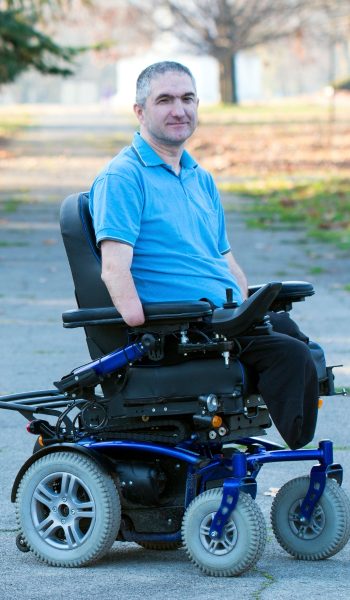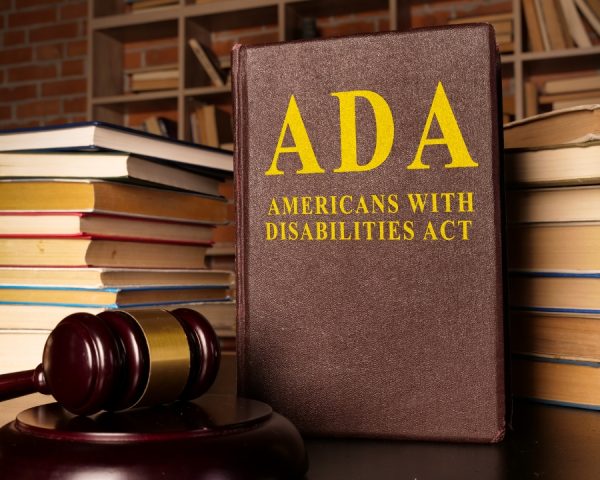
Housing Rights
Ensuring Equal Opportunities for People with Disabilities
Providing free legal services to individuals with disabilities throughout California who have been subjected to housing discrimination.

.
The Center for Disability Access fulfills its mission by combating discriminatory housing practices and assisting individuals in enforcing their housing rights under fair housing laws.
As one of the leading disability rights law firms in California, we have a deep understanding of the issues that people with disabilities face when trying to secure adequate and affordable housing.
Disability Housing Rights
Our attorneys have produced a list of the most commonly asked questions and answers regarding disability housing rights.
Disability Housing Rights FAQs
The FEHA includes most residential accommodation, including homes, condominiums, flats, mobile home parks, group homes, and shelters, for sale or lease.
Housing owners (including the government), managers, actual property brokers, mortgage lenders and organizations of homeowners are also protected.
FEHA does not cover: (a) Refusal to rent a portion of an owner-occupied single-family house to a roomer or boarder when only one roomer or boarder is to live in the household and the owner does not publish any discriminatory notices, statements, or advertisements; and (b) stating or implying that housing is available only to persons of one sex, where sharing of living areas in a single dwelling is involved.
Yes, they are eligible for reasonable accommodations. Although not discriminating usually means treating everyone the same, disability discrimination is different. When necessary for people with disabilities to have an equal opportunity to enjoy housing, the housing provider must allow them to make reasonable modifications to the premises and must make reasonable accommodations, meaning changes to rules, practices, and services.
A reasonable accommodation is a change in the way things are done that helps residents or applicants with disabilities have an equal opportunity to use and enjoy housing, such as changing a policy or rule.
Can Be Reasonable Accommodations
- Reserved parking spaces
- Making exceptions to a no-pets policy
- Changing the deadline to pay rent
- Allowing a third party to cosign the lease or pay the rent
- Allowing a live-in aide
- Delaying eviction
- Modifying the terms of a lease
Not Reasonable Accommodations
- Reducing the rent
- Permitting the use of illegal drugs
- Adding an elevator to a building without one
Yes, but the housing provider must make exceptions to the rule, which are called reasonable accommodations, when necessary for people with disabilities to have an equal opportunity to enjoy housing. Refusing to allow necessary service animals or emotional-support animals is illegal discrimination. Service animals and emotional-support animals are not subject to breed, size, or weight restrictions ordinarily applied to pets, and tenants must not be charged pet deposits or pet rent for them.
A reasonable modification is a structural change made to existing premises, interior or exterior, occupied or to be occupied by a person with a disability for the person to have full enjoyment of the premises.
In most instances, the tenant is responsible for all costs connected to the modification but a landlord or homeowners association (HOA) cannot refuse to allow a reasonable request. Under certain circumstances, the tenant may be required to restore the premises to the condition that existed before the modification (other than for reasonable wear and tear). Because accessible parking spaces are accommodations, not modifications, the landlord/HOA is required to pay for the costs associated with providing accessible parking.
However, federally assisted housing providers must pay for disability-related reasonable modifications. Please see HUD.gov for more information.
If a housing provider is skeptical of a tenant’s alleged disability, the provider can ask the tenant for medical verification of the disability-related need for accommodation or modification. The housing provider is only entitled to verification that the tenant has a disability, not identification of the disability or diagnosis and that there is an identifiable relationship between the requested accommodation and the individual’s disability.
Service Animals FAQs
The FHA itself does not define the term “service animal.” However, cases decided under the FHA have defined a service animal as an animal that is necessary to afford an individual an equal opportunity to use and enjoy his/her dwelling or to participate in his/her housing service or program. Under the FHA, unlike some other laws, service animals can be species other than dogs (e.g. cats), and can be animals that provide emotional support.
Special training or certification is not required. However, there must be a relationship, or nexus, between the individual’s disability and the assistance the animal provides.
When you request a reasonable accommodation, you may be asked to provide some reliable professional documentation (medical records not necessarily required), confirming that you have a disability and your service animal is necessary for you to use and enjoy your dwelling or to participate in your housing service or program.
A housing provider cannot exclude a service animal based on its breed or size.
A service animal can only be excluded if:
- Allowing the animal would impose an undue financial or administrative burden or would fundamentally alter the nature of the housing program or services;
- The specific animal in question poses a direct threat to the health and safety of others that cannot be reduced or eliminated by a reasonable accommodation; or
- The specific animal would cause substantial physical damage to the property of others that cannot be reduced or eliminated by a reasonable accommodation.
A service animal is not a pet. Accordingly, a tenant with disabilities who uses a service animal cannot be required to pay pet deposit. A housing provider may charge a tenant who uses a service animal a general cleaning or damage deposit, but only if it is their regular practice to assess non-disabled customers similar fees. For example, a housing provider can charge a guest with a disability the cost of repairing or cleaning furniture damaged by the tenant’s service animal if it is the housing provider’s policy to charge when non-disabled guests cause such damage.
No. Service animals are allowed in all areas that tenants are allowed, unless it would create an undue burden or fundamentally alter the provider’s services to provide such access.
Hoarding FAQs
The fourth edition of the Diagnostic and Statistical Manual of Mental Disorders (“DSM-IV”) listed hoarding as a symptom of Obsessive Compulsive Disorder (OCD) and referring to it as “compulsive hoarding”.
However, researchers and clinicians found that hoarding did not respond to traditional OCD treatments. This led to a redefining of hoarding in the fifth edition of the Diagnostic and Statistical Manual of Mental Disorders (“DSM-V”) as a discrete disorder independent from OCD. The disorder is now referred to as “Hoarding Disorder”.
The diagnostic criteria for Hoarding Disorder are:
- Persistent difficulty discarding or parting with possessions, regardless of their actual value, due to a perceived need to save the items and to distress associated with discarding them;
- Accumulation of possessions that congest and clutter active living areas and substantially compromises their intended use;
- Clinically significant distress or impairment in social, occupational, or other important areas of functioning (including maintaining a safe environment for self and others); and
- The hoarding is not attributable to another medical condition (e.g., brain injury), or better explained by the symptoms of another mental disorder (e.g., OCD).
Yes – hoarding behaviors that violate health and safety codes or violate a tenant’s leave are indicative of a disability, and individuals who hoard are protected by the disability related provisions of fair housing law.
Manifestations of hoarding that may violate a tenant’s lease include:
- Odor
- Infestation
- Blocking Exits
- Fire Hazards
- Blocked Exits
- Papers near stove, heating vents
- Storing combustible items
- Feces, untended litter
- Damage to carpets, other property
- Health/Fire Department Citations
- Unusable bathroom facilities
People who hoard are entitled to “reasonable accommodations” when faced with adverse housing actions as the result of their disabilities.
Reasonable accommodations are changes in policies and procedures that allow a tenant to remedy violations created by the hoarding behavior.
Common accommodations include:
- Extra time to allow a tenant to clean out his or her apartment in order to pass a housing or subsidy inspection;
- Extra time to allow a tenant to access and utilize services to address the hoarding behavior and underlying causes; and
- Agreement to a payment plan that permits a tenant to catch up on unpaid rent when the tenant used rent money for his or her hoarding activities.
To effectively address the impact of hoarding behaviors, an accommodation plan must include both a short and long term plan. Imminent threats must be dealt with as soon as possible, and a strategy must be developed for reducing the chance of future violations. Behavior therapy and a network of support are often essential to long term success. The accommodation plan must also address unpaid rent, damage to property or other related issues.
People are allowed to live in their homes and apartments and to fill those homes and apartments full of belongings that others might consider garbage so long as…
- Leases are followed; and
- City ordinances are followed.
Focus should be only on solving legitimate health and safety issues rather than attempting to achieve ideal housekeeping habits Generally, you should ensure the following minimum safety guidelines are met:
- Working toilet and sink;
- Adequate walking paths in rooms used on a regular basis;
- Safe walkway (flooring uncluttered);
- No infestations of insects and/or rodents;
- No excessive accumulation of garbage; and
- Absence of fire hazards – no combustibles near radiators or stoves, no blocked exits, no overloading of outlets.
No – accommodations can be requested at any time, even after eviction proceedings have been initiated. Courts have the authority to stay eviction proceedings to allow a tenant the opportunity to utilize social service agencies that would assist him/her in cleaning his/her apartments and regaining compliance with lease terms. See e.g., Douglas v. Kriegsfeld Corp. 884 A.2d 1109 (D.C. 2005).
No. There is no set limit on the number of times a tenant may be accommodated for hoarding behavior. However, accommodation will not be required if a tenant violates his or her lease and/or health and safety codes repeatedly, or if prior efforts to accommodate have been unsuccessful.


Legal Representation for Individuals with Disabilities in California
If you are a person with a disability and believe that you have been mistreated because of your disability, or have experienced physical barriers or impediments to access, or if your employer or landlord has failed to make a reasonable modification in policies or practices to accommodate your disability, please contact the CDA to have one of its attorneys evaluate your case at no charge.
Moreover, the CDA does not charge clients. If your rights have been violated under the disability access laws, you are entitled to recover civil penalties, actual damages, and the defendant has to pay your attorney fees and costs of suit.
If you have a question about your rights, please do not hesitate to ask. You have the right to force facilities to provide access as required by law and you are entitled to damages if the facility does not meet those requirements.
The Center for Disability Access will not charge you for its legal services provided unless your case is won.
Discriminatory Housing Practices
Whether you are dealing with issues of accessibility, discrimination, or other housing challenges, we can help.
We have extensive experience working with individuals to help them understand their rights and navigate the legal system, and we are committed to ensuring that all people with disabilities are treated fairly and equally under the law.
If you have experienced any form of housing discrimination, it is important to speak with an experienced housing discrimination attorney as soon as possible.
Signs of Discrimination in Housing
One common example of discriminatory housing practices is when landlords or property managers refuse to rent to individuals with disabilities. This can take many forms, such as denying applicants based on their ability to meet certain requirements, refusing reasonable accommodations that would make a unit more accessible, or even outright harassment and intimidation.
One common example of discriminatory housing practices is using advertising that suggests a rental preference for people without disabilities, such as stating that an apartment is “ideal for active and independent seniors.” This can create the impression that individuals with disabilities are not welcome or are unable to live independently, and it can serve as a cover for more overt forms of discrimination.
One common example of discriminatory housing practices is when landlords or property managers harass a tenant on the basis of their disability. This can include making offensive and derogatory remarks, engaging in intimidation tactics, and denying reasonable accommodations that would allow tenants to maintain their tenancy.
One common example of discriminatory housing practices is refusing to change a policy in order to accommodate a tenant or applicant with a disability. This can include denying reasonable requests for reasonable accommodations, such as waiving rules that prohibit pets or allowing an individual to reside with his or her assistance animal. Such refusals violate the rights of individuals with disabilities under federal civil rights laws and can lead to further legal action.
One common example of discriminatory housing practices is refusing to allow a tenant with a disability to make physical modifications to his or her unit or common areas. This can include denying reasonable requests for accommodations, such as installing lowered counters or a ramp that would enable the tenant to access their unit and maintain their tenancy. Refusing these types of modifications violates the rights of individuals with disabilities under federal civil rights laws and can lead to further legal action.
One common example of discriminatory housing practices is making veiled or outright threats in order to dissuade a tenant from filing a fair housing complaint, engaging in harassment or other discriminatory behavior against tenants who have asserted their rights, or even taking other illegal actions to interfere with a tenant’s fair housing rights. Such tactics are unacceptable and will not be tolerated.
At the Center for Disability Access, our experienced attorneys are committed to protecting the rights of individuals with disabilities and helping them secure the fair and equal treatment they deserve.
Contact us today to learn more about how we can help you navigate the legal system and pursue justice.
We do not represent individuals in evictions or landlord-tenant disputes that do not involve discrimination.
Schedule a Free Consultation Today!
Fight for your rights against housing discrimination: Contact the Center for Disability Access today.
The Center for Disability Access
100 Pine Street Suite 1250 • San Francisco, CA 94111
Phone: (415) 534-1911 • Monday – Friday, 8:00 am – 5:00 pm
Schedule a Free Consultation
We offer free case evaluations to help you determine if you have a valid claim.
No Fee Unless We Win Your Case
If we are unable to prevail in your case, you will not be responsible for paying any fees to us.
Providing Legal Service in California
Legal representation to individuals facing disability rights, housing rights, and other related issues.
Dedicated to Defending and Advocating for Equality and Accessibility for All.
- Abuse and Neglect Lawyer
- Disability Access Lawyer
- Employment Discrimination Lawyer
- Housing Accessibility Lawyer
- Paralysis Injury Lawyer
- Traumatic Brain Injury Lawyer
- Website Accessibility Lawyer
- Privacy Policy

